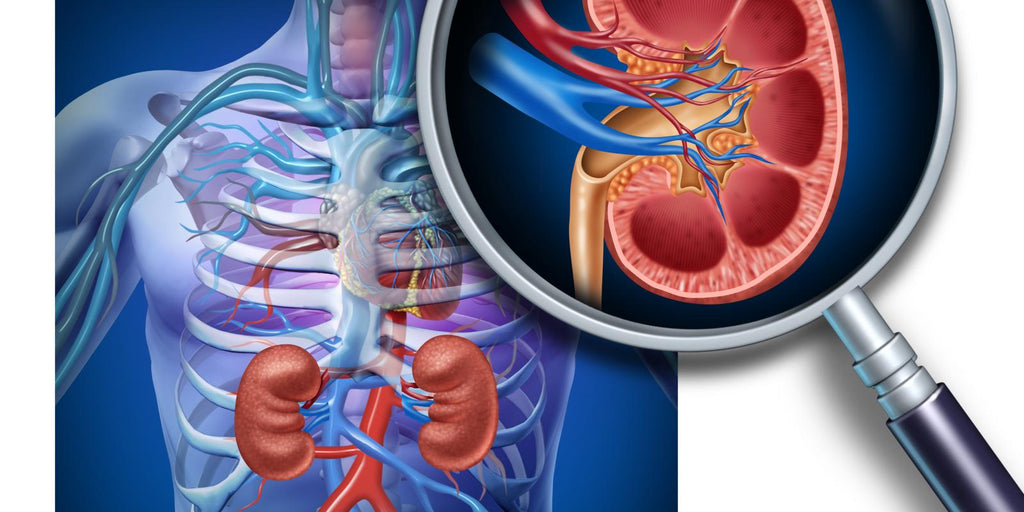Urine pH in Kidney Disease: Why It Matters

The kidneys play a critical role in maintaining the body's overall health, especially in regulating fluid and electrolyte balance, filtering waste, and detoxifying the blood.
Among the various tests used to assess kidney health, urine pH is a vital indicator that can provide insights into your kidney function and help detect and manage kidney disease. This blog explores the significance of urine pH in the context of kidney health, utilizing information from key health resources.
What is Urine pH?
Urine pH is a measure of how acidic or alkaline your urine is. The pH scale ranges from 0 to 14, with 7 being neutral. A pH less than 7 is acidic, while a pH greater than 7 is alkaline. The typical urine pH ranges from 4.5 to 8.0, varying throughout the day depending on many factors, including diet, medications, and underlying health conditions.
The Importance of Urine pH in Kidney Disease
Monitoring urine pH is crucial because deviations from the normal range can indicate various health issues, including kidney disease. Abnormal urine pH levels can lead to the formation of kidney stones, affect the kidney's ability to filter blood, and indicate the body's difficulty in maintaining proper acid-base balance
Detection of Kidney Stones:Depending on whether the urine is too acidic or too alkaline, different types of kidney stones may form. For instance, a consistently low pH may lead to uric acid stones, while a high pH could cause calcium phosphate stones.
Indicator of Tubular Health: The kidneys' tubules help regulate pH by either excreting acid or alkaline compounds into the urine. Persistent abnormalities in urine pH can suggest problems with these mechanisms, often pointing to tubular dysfunction as seen in conditions like renal tubular acidosis.
Influence on Drug Excretion: The pH of urine can influence the excretion of medications. Some drugs are more effectively cleared from the body in acidic or alkaline conditions, and abnormal urine pH can affect drug effectiveness and toxicity.
How Does Kidney Disease Affect Urine pH?
Chronic kidney disease (CKD) and other renal disorders can significantly alter urine pH. When the kidneys are damaged, their ability to filter blood and regulate the body’s acid-base balance is compromised. This dysfunction can lead to either sustained acidic or alkaline urine, each with its own set of complications.
Acidic Urine and Kidney Disease: In diseases like diabetic nephropathy, the urine may become excessively acidic due to the kidneys' reduced ability to filter out acids. Low urine pH over time can contribute to the formation of uric acid stones.
Alkaline Urine and Kidney Disease: High urine pH can be seen in conditions such as kidney infections (pyelonephritis) or when there is an obstruction in the urinary tract. This elevated pH can lead to calcium phosphate stone formation.
Monitoring Urine pH in Clinical Practice
Healthcare providers often recommend regular urine tests, including pH testing, as part of the routine assessment for kidney function. This is particularly important for patients at risk of CKD or those managing existing kidney conditions. For example, a study highlighted by the National Kidney Foundation found that low urine pH could serve as a new marker for contrast-associated acute kidney injury, which is critical for patients undergoing certain types of diagnostic imaging.
KetoCitra® And Urine Ph
By Preventing The Formation Of Micro-Crystals And Kidney Stones, KetoCitra® Mayhelp In Slowing Down The Progression Of Kidney Disease.
- Urinary Balance: KetoCitra® contains citrate, which aids in normalizing urinary citrate levels, a common imbalance found in individuals with kidney disease.
- Prevention of Micro-Crystals: By correcting low urinary citrate levels (hypocitraturia), KetoCitra® reduces the risk of micro-crystal formation which can lead to kidney damage and cyst development.
- Reduced Risk of Stones: Normalizing urine citrate levels with KetoCitra® decreases the chances of developing kidney stones, a common complication for those with kidney disease.
- Inhibition of Disease Progression: By preventing the formation of micro-crystals and kidney stones, KetoCitra® may help in slowing down the progression of kidney disease.
Conclusion
Understanding and monitoring urine pH is an essential aspect of kidney health management. It not only helps in the early detection of kidney disease but also aids in the management of conditions that could exacerbate renal problems, such as the formation of kidney stones. Regular urine tests, lifestyle modifications, and appropriate medical interventions can help maintain optimal kidney function and prevent the progression of kidney disease. By paying attention to urine pH, patients and healthcare providers can work together to ensure better health outcomes for individuals suffering from or at risk for kidney disease.

Leave a comment: